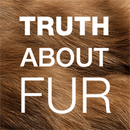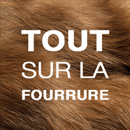WatchMojo.com interviews Alan Herscovici, senior researcher at Truth About Fur, and executive vice-president of the Fur Council of Canada from…
Read More
WatchMojo.com interviews Alan Herscovici, senior researcher at Truth About Fur, and executive vice-president of the Fur Council of Canada from 1997 to 2016. Did you know that wearing fur can be good for the environment? Edited highlights follow.
Alan Herscovici: Some of the activist groups today are saying, “We don’t need fur. We have all these great synthetics,” but most synthetics are made from petrochemicals. They are non-renewable resources, there’s pollution problems and so on. So fur really has a role to play. It’s been around a long time. It’s proven. It has a track record. So here we are, 400 years after the commercial fur trade started in Canada. The biologists tell us that the beaver are as abundant as they were when Europeans first came. That’s quite an environmental success story.
WatchMojo: What do you have to say to people who believe that fur is unethical?
AH: We shouldn’t kill animals for frivolous purposes, and some activists are saying a fur coat is a frivolous purpose. But we do have to wear something. We do wear winter clothing. When you think of fur as being a natural product, such a long-lasting product, that we can remodel it and restyle it, it can be passed down and worn vintage, it’s anything but frivolous. And it’s not at all frivolous for the people who live on the land. The Cree of James Bay eat beaver and muskrat. They hunt them for food. They don’t have cows up there. When they’ve eaten the meat, should they throw the fur away?
WatchMojo: You started an initiative called FurIsGreen.com. Can you tell us about that?
AH: People are ready to hear another side of the story. The [fur] trade is so artisanal, a handicraft heritage industry, and that’s why we haven’t heard the other side. When you attack a big modern industry, they give it to some PR department. The reason you haven’t heard the other side of the fur story is because they’re not communicators. It’s trappers out in the bush. It’s family farms. Everything around us does come from the land, from people who got their hands dirty. Lumberjacks or miners or cattlemen, all these people that are being attacked by these protest campaigns are the people that feed us and clothe us. And there’s something bizarre that we’ve had the privilege that the people on the land have done such a good job that most of us can live in the city and have nice clean fingernails and talk about stuff and call that working. What do we do with that freedom? We turn on the people on the land as if there was something wrong with them, and that’s something we have to change.







